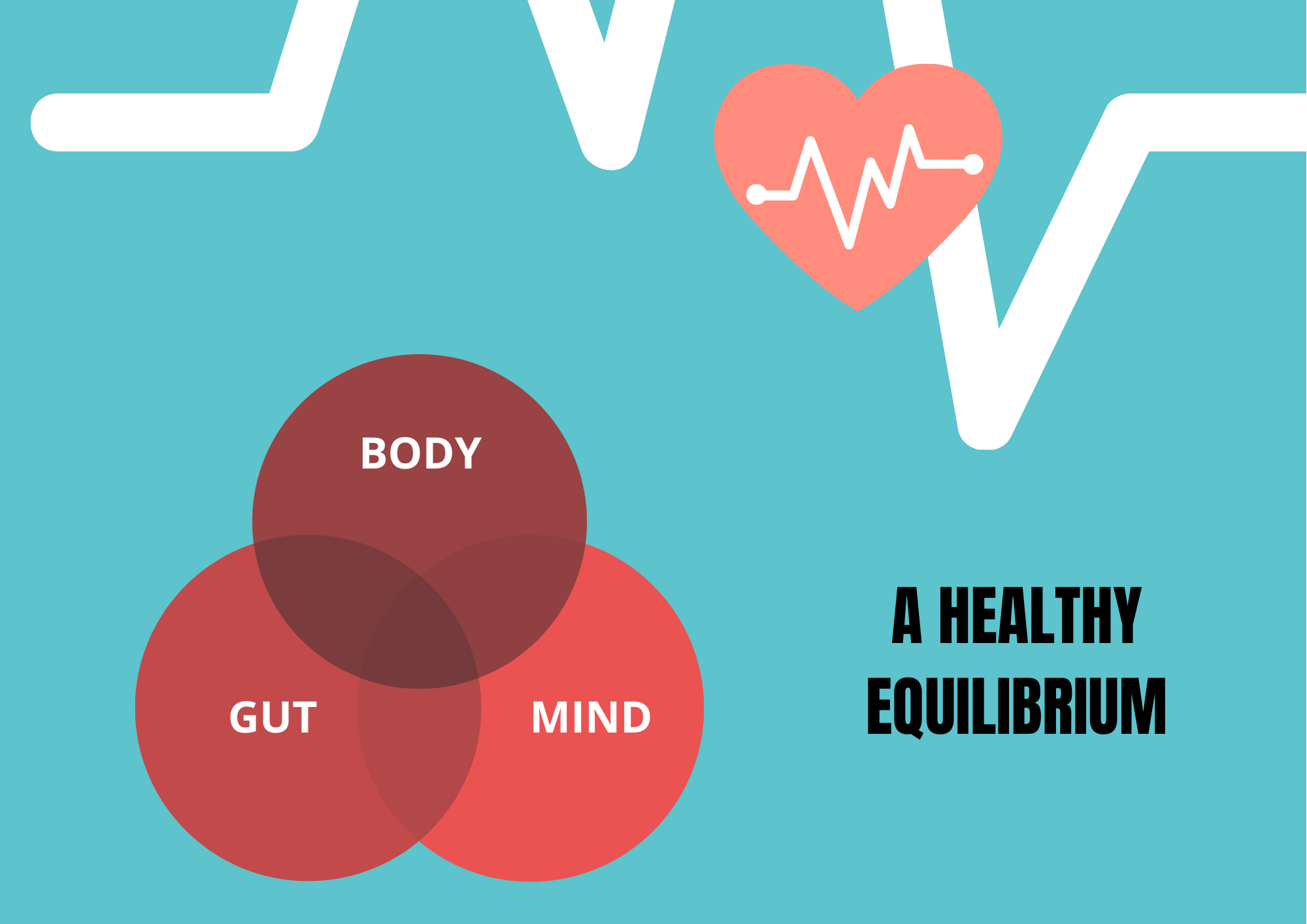‘Looking good is equivalent to being healthy’ – a belief held by millions and one that I believed in till recently.

Health encompasses the Body, Gut and Mind. A healthy day for me is when I have achieved an equilibrium amongst these three facets – a good workout which means my endorphins are at a high and the body is not unnecessarily fatigued after; a gut satiated, and not bloated; and a mind which is relaxed, focused and not unnecessarily distracted. In that respect, there are definitely more ‘unhealthy’ days over ‘healthy’ ones. It is tough to constantly achieve this equilibrium; my understanding of which is constantly evolving through constant learning.
There is no one size fits all playbook out there to achieve this equilibrium; after all each of us are unique. But we could strive to achieve it by following certain principles; my version of what the top ones could be are given below
Keep Moving
We are born to move. We were hunters and gatherers before we were office workers. It is true that most professions today have relegated us to desks, making us less mobile than our ancestors. So we need to resort to enablers, outside of work, to keep moving. Moving could be getting in your daily steps, a high intensity workout, an endurance session, or even cleaning the house from top to bottom till you can see the sparkle. There are hundreds of way you can workout; set your goal, pick the workout that would help you achieve the goal, and get moving. Sweat it out. Heart it out. Monitor. Tweak if necessary.
Be functional, Be holistic
Each of us pursue a fitness routine with a goal in mind – to lose fat, to improve time, to get stronger and so on. At the same time, it is important for the goals to be functional and holistic. After all, we work out to achieve a future better self – not just a part of our self but our overall self. As a trainer once told me, what’s the point in achieving (increasing) week on week numbers on your biceps when you are unable to properly bend down and pick something off the floor.
Listen to your body
Your body in your 20s is not the same as in your 30s. As you age, your bones might creak and your muscles might protest. You might need to find more sustainable ways to warmup and cool-down – a brisk walk might not do the trick anymore. Listen to your body, adjust your workouts, treat your weakness, monitor and tweak further.
Practice good nutrition
There is no single best diet because each of us are unique. We are separated by body type, age, fitness level, our preferences, our ethnic background to name a few. So what is good nutrition? Precision Nutrition lays down the following principles of good nutrition
- Controls energy balance – One example is if we take in more energy (through food) than we expend (through exercise, metabolic activities etc.), we put on weight
- Gives us nutrients – Nutrients help us be healthy and perform our best
- Is outcome based – Every nutrition choice we make will lead to an outcome and this can be measured
- Is sustainable for us and the planet
- Is about removing limiting factors – Some of the limiting factors that stand between us and reaching our goals include exercise, mindset, genetics etc.
Don’t demonize or be scared of food
There are no bad foods. There are foods with high nutrient density and foods with low nutrient density. And it is absolutely okay to partake in the latter. Remember the 80:20 rule – 80% of the time, focus on getting in good nutrition.
Declutter your mind
An excerpt from Ryan Holiday’s Daily Stoic – The proper work of the mind is the exercise of CHOICE (to do and think right), REFUSAL (of temptation), YEARNING (to be better), REPULSION (of negativity, of bad influences, of what’s not true), PREPARATION (for what lies ahead), PURPOSE (our guiding principle and highest priority), and ASSENT (to be free of deception about what’s inside and outside our control and be ready to accept the latter). Epictetus writes in Discourses, 4.11.6-7
This is what the mind is here to do. We must make sure that it does and see everything else as pollution or a corruption.
Breathe
We live because we breathe (unconsciously). But have we tried breathing (consciously and mindfully) so that we can live better? Conscious breathing is the underlying tenet of meditation. Some of the benefits include regaining calmness, reducing stress, lowering heart rate amongst many others. Wim Hof (the Iceman who is noted for his ability to withstand extreme freezing temperatures) further stipulates that proper breathing which would be a series of rhythmic inhalations and exhalations influences the nervous system enabling improvement in several physiological responses

